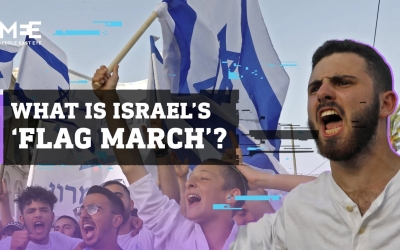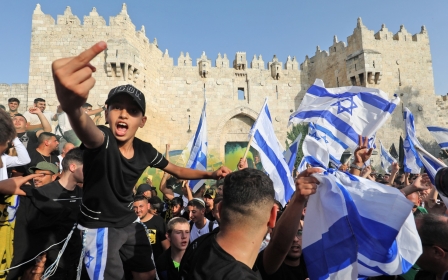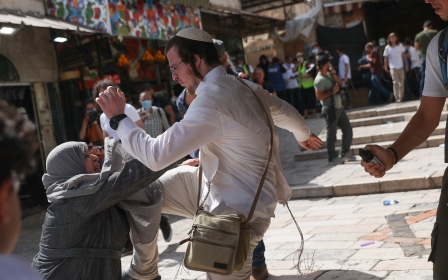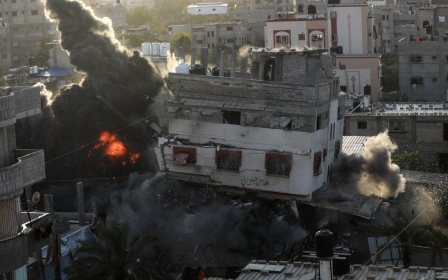Israeli settlers and politicians storm Al-Aqsa ahead of far-right march
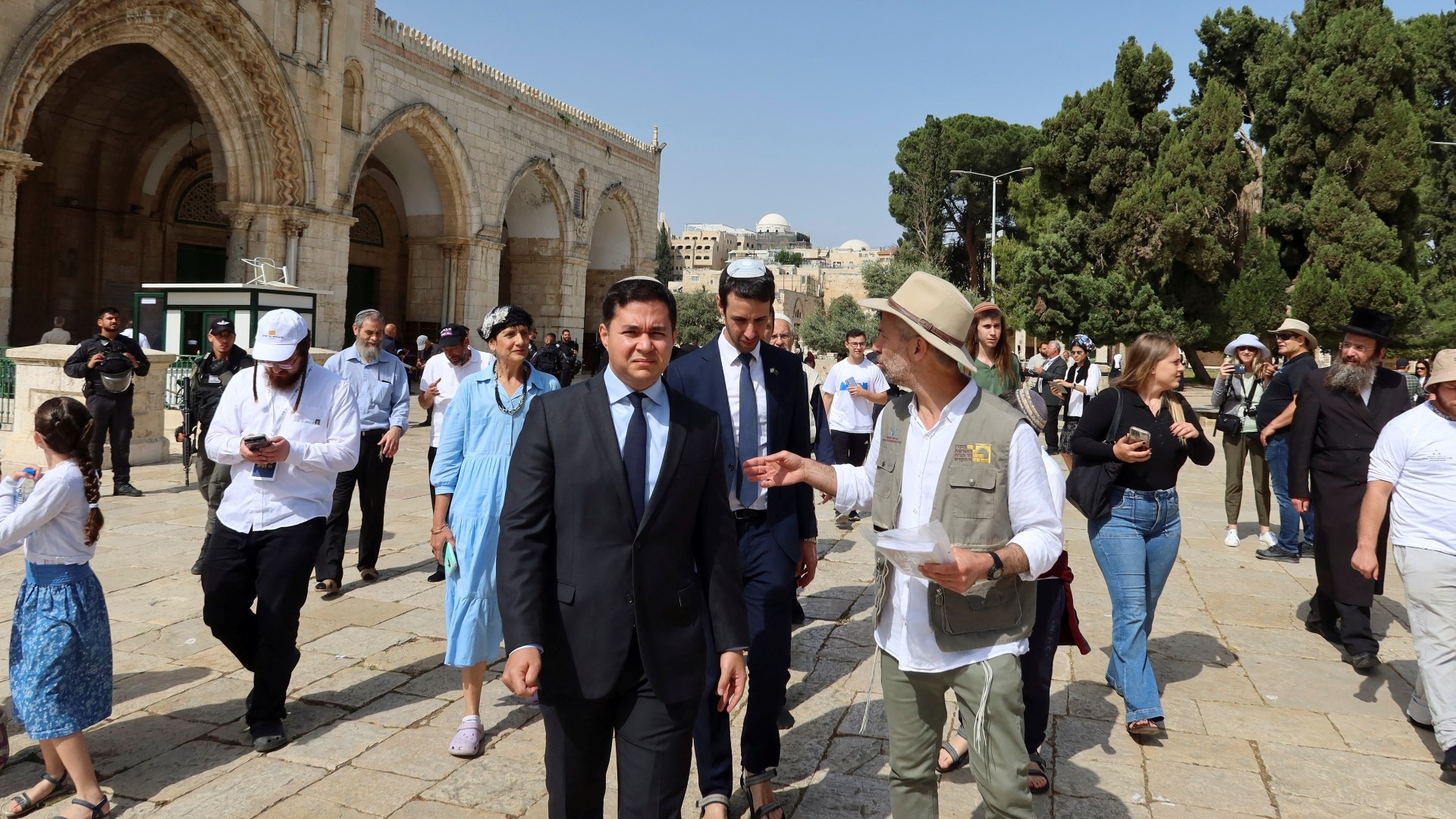
Israeli settlers and politicians stormed Al-Aqsa Mosque on Thursday morning, ahead of thousands taking to the streets of Jerusalem for a divisive annual ultra-nationalist march.
Security officers cleared the Qibli prayer hall of Palestinian worshippers following the Fajr dawn prayers, according to Palestinian media.
At 7am local time, the Moroccan Gate (Bab al-Magharib) to Al-Aqsa's courtyards was opened and hundreds of settlers stormed the holy site.
Several lawmakers were in their ranks, including Negev and Galilee Development Minister Yitzhak Wasserlauf, who belongs to the far-right Jewish Power party.
Three MPs in Prime Minister Benjamin Netanyahu's Likud party, Dan Illouz, Amit Halevi and Ariel Kallner, also partook.
New MEE newsletter: Jerusalem Dispatch
Sign up to get the latest insights and analysis on Israel-Palestine, alongside Turkey Unpacked and other MEE newsletters
Al-Aqsa Mosque is an Islamic site where unsolicited visits, prayers and rituals by non-Muslims are forbidden, according to decades-long international agreements.
Israeli groups, in coordination with authorities, have long violated the delicate arrangement and facilitated raids of the site and performed prayers and religious rituals.
Settlers who stormed the mosque on Thursday were reportedly given a tour of the courtyard before performing Talmudic rituals near the Dome of the Rock.
The hill on which Al-Aqsa Mosque sits is known to Jews as the Temple Mount, and is the site of the Jewish Temple destroyed by the Romans in the first century.
Though many Jews believe it is forbidden to stand upon it, and the Status Quo agreement states Jewish prayer must also be avoided, far-right Israelis, most often settlers, have increasingly flouted these rules backed by Israeli forces.
Flag march
Tens of thousands are expected to participate later on Thursday afternoon in the annual "flag march," a far-right parade associated with violence against Palestinians and the "display of incitement, Jewish dominance, and racism", according to Israeli NGO Ir Amim.
The rally, which is part of the "Jerusalem Day" holiday commemorating the occupation of the city in 1967, will march through the Old City's Muslim quarter, where Palestinians are forced to close their shops and stay indoors.
Last year, Israeli ultra-nationalists and police forces attacked Palestinians during the march as they chanted racist and Islamophobic slurs, including "Death to Arabs" and "Muhammad is dead," referring to Islam's prophet.
At least 79 Palestinians were wounded from rubber-coated steel bullets, beatings and pepper spray in the attacks.
This year, Israel's far-right National Security Minister Itamar Ben-Gvir is expected to attend the rally, exacerbating tensions.
Around 2,500 Israeli police officers will be deployed across the city to gaurd the rally.
The march is seen as reinforcing Israel's claim to the entire city, including the predominantly Palestinian neighbourhoods in East Jerusalem, which is recognised as occupied by the international community.
Israel's police chief Kobi Shabtai denied on Wednesday that the march would go through Al-Aqsa Mosque after it was reported that some ultra-nationalist groups asked for the site to be included in the rally's route.
"The route of the march has been the same for decades and will not change tomorrow either," he said in a statement
This year's Flag March comes less than a week after a tentative ceasefire agreement was reached between Israel and Palestinian groups in Gaza, following five days of Israeli air strikes that killed at least 33 Palestinians, including six children and three women.
Middle East Eye delivers independent and unrivalled coverage and analysis of the Middle East, North Africa and beyond. To learn more about republishing this content and the associated fees, please fill out this form. More about MEE can be found here.


